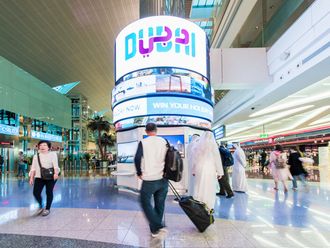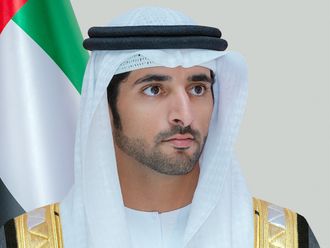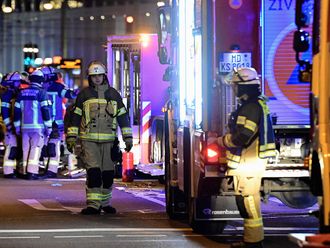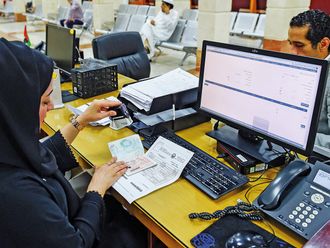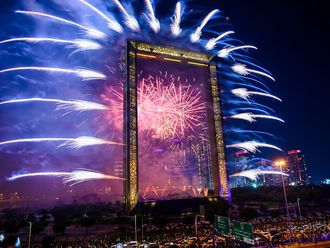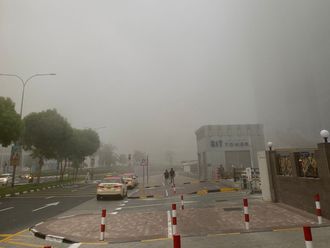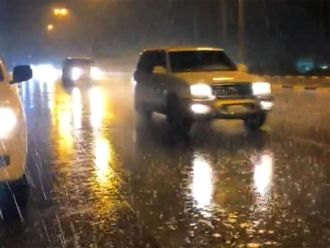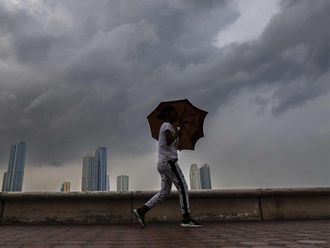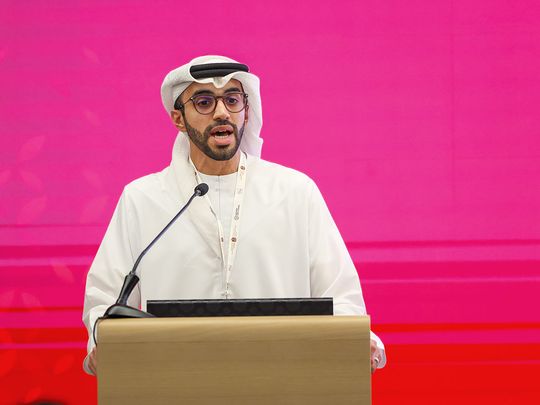
Having travelled to 14 Indian states in the past two years and meeting common people, students and the business community, Dr Abdulnasser Alshaali, UAE Ambassador to India, has learned one key thing: “We need more flights” between the two countries.
While UAE-India relations have reached new heights following the Comprehensive Economic Partnership Agreement (CEPA), and bilateral non-oil trade remains on track to hit $100 billion by 2030, Dr Alshaali told Gulf News about the challenge in further strengthening people-to-people and business-to-business connections: aviation.
“My probably one and only challenge is aviation. I know many listeners or readers might think it’s just because we want more flights but that’s not the case. The fact is the prices have increased by a significant number. It’s double compared to 10 years ago. There’s no supply left in the market and demand is much higher. It will continue to grow, and from different cities across India,” Dr Alshaali said in an interview on the sidelines of the inaugural UAE-India Founders’ Retreat at the Dubai International Financial Centre.
“Everything else in this relationship, in one way or another, is already being taken care of,” Dr Alshaali said and noted that aviation has developed up to a certain point but has now “stagnated”.
“Mine and my team’s challenge today is finding new avenues for cooperation, ideas and things to explore in this bilateral relationship. But no one would look at aviation and think that we are stuck here.”
There are hundreds of weekly flights connecting Dubai, Abu Dhabi and Sharjah to major Indian cities like New Delhi, Mumbai, Bengaluru, Chennai, and states such as Kerala.
Dr Alshaali said that more flights would strengthen the people-to-people connection and ensure ease of travel for investors, business communities, and students.
“For all of this to work, everything that we’re doing, we need to have the flight. So, that people can get on the flight, travel to the UAE or India, attend their meetings and return without worrying about getting a seat, regardless of the price.”
Connecting Tier 2 cities
This year, India conducted the general election – the world’s largest electoral exercise, followed by eight state elections. The large number of people needing to fly in to vote was an eye-opener for Dr Alshaali.
“I did not know that every Indian has to fly to their constituency in a specific city and state on a specific day to vote. And if that’s the case, how is this going to work? We have a significant number of Indians living in the UAE who continue to call it their second home, and it just makes sense we need to move forward,” Dr Alshaali said and noted: “You do need more flights, more seat capacity because otherwise, prices are going to continue to go up.”
Dr Alshaali revealed discussions are underway to connect more Tier 2 cities.
“We are open to doing Tier 2 cities. More cities have pitched this idea and asked that we help in making this happen,” he said and noted that more flights would boost tourism, create jobs, and expand connectivity.
“Everything is on the table. We’re trying to show how to create and have this win-win situation. And when we do, I think it will change the dynamics of the relationship significantly.”
On a lighter note, Dr Alshaali described his term in New Delhi as a “once-in-a-lifetime opportunity” to explore India’s diversity.
“You can visit two cities in the same state, and your experience will be different in terms of people, culture, food, and scenery. It’s been a great experience. I am sure when I return, I’ll have quite a few tales to tell.”
UAE-India CEPA Council
The UAE-India Founders’ Retreat brought together more than 60 top Indian startup founders, UAE business leaders, investors, and policymakers.
Dr Alshaali highlighted the establishment of the UAE-India CEPA Council is aimed at supporting startups from both countries in exploring market and investment opportunities. Insights from roundtable discussions with business leaders and startup founders indicate that everyone is eager to expand to the UAE.
“It seems like everyone is interested, and for all kinds of reasons,” he said pointing out the ease of doing business in the UAE, the benefits of the Golden Visa, and the UAE's role as a gateway to the world.
Dr Alshaali noted that startups from the UAE will be looking keenly at the Indian market.
“The market size in India is massive. It’s very easy to scale up there. It’s easy to attract talent in the Indian market. So, it totally does make sense.”



